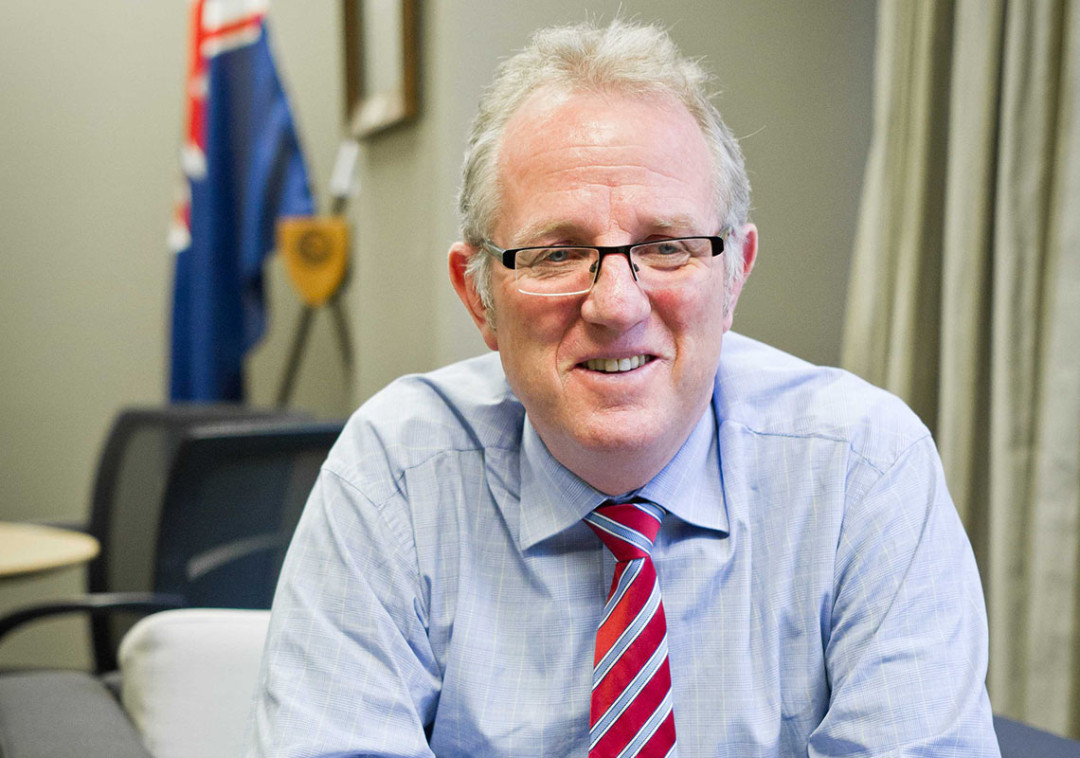Q&A: Greg O'Connor

Greg O’Connor has seen a lot of change since he was elected New Zealand Police Association President in 1995. Ahead of his retirement from presidential office in October 2016, Matters of Substance sought his thoughts about drug policy.
New Zealand has changed a lot since you were elected President. What trends around alcohol and other drugs stand out to you?
Methamphetamine has undoubtedly been the big game changer. I was a Police officer in Wellington in the late 1970s when heroin was a major issue, characterised by large numbers of overdose deaths and people addicted to drugs committing crime. The demise of the Mr Asia syndicate in 1980 meant that, until the mid-1990s arrival of methamphetamine, New Zealand had very little ‘white powder’ illicit drugs available. Old criminal informants of mine then began telling me about changes to the drug scene such as the prevalence of P, pushed by the biker gangs. Very shortly, all levels of gangs – from ethnic gangs at street level, biker gangs at mid and manufacturing level and Asian crime gangs at the importing level – had become involved in the market.
Today, much of the crime Police deal with has a P element to it, especially the violent crime. The difference with a methamphetamine-type substance is the effects of the drug itself that causes the problem, as opposed to most other drugs where it is the addiction and need to feed it that causes most of the associated crime issues.
Alcohol abuse and the problems it causes are rife. Can more be done to minimise harms?
The other major change has been around liberalisation of alcohol laws. Whatever the discussion around illicit drugs, alcohol remains far and away the major problem for Police and society. Price, availability and promotion of alcohol are all issues. The theory that liberalisation would lead to a more responsible drinking culture left one important factor out – the business of alcohol is about increasing markets and sales, and a largely unfettered market has successfully achieved just that. The only places where successful regulation of drinking practices is possible, the bars and licensed premises, are not generally the places where the problems occur. Pre-loading with cheap alcohol and other off-premises drinking are where the real issues lie for Police. And that is without considering the long-term health implications and the domestic violence associated with drinking outside regulated premises in particular.
What are your views about shifting to a more health-focused drug law?
In my opinion, all the focus on drug and alcohol policy should be about health, both of the individual and society. We should balance the damage that is likely from the inevitable short-term increase in the amount of drug use from legalisation of drugs against the damage done to society by the same drugs being illegal and supply and quality being left in the hands of unregulated criminals. Mexico is a very good example where the damage of the illegal drug trade is turning Mexico into a narco state. The crime damage would appear to vastly outweigh any likely damage to individuals from legalising drugs.
Other issues where a health focus would be important are quality control and access to treatment. I think our synthetic cannabis laws are a good example of the success of a health approach. It was much easier to achieve because the industry was legal and dominated by legitimate business people. When the regulation required them to prove substances were not harmful, they couldn’t, and they mostly left the industry. There is some criminal supply still, but it’s no longer the problem it was before regulation.
What can we learn from states where cannabis has been made legal?
I have spent time in The Netherlands and in Colorado looking at their cannabis regimes. They are quite different in that cannabis in The Netherlands is not legal, just ‘permitted’, but the supply to the ‘coffee shop’ trade has not been legalised and remains largely in the hands of criminals. In Colorado, everything is legal and heavily regulated supply-wise from ’seed to weed’. In my view, decriminalisation does not remove the issue of illicit supply, whereas the Colorado legalisation of the trade achieves what I believe should be one of the primary strategies of drug policy – to make it safer by taking the trade out of the hands of criminals. It also introduces an element of quality control.
I am not advocating legalisation but do believe that, if we were to liberalise our cannabis laws, the main reason should be to get the criminals out of the business, and only full legalisation and regulation does that. Otherwise, we risk increasing consumption only and, in doing so, increasing the power and sphere of intimidation of the criminals involved in the still illicit supply.
More pre-charge warnings are being issued for minor drug possession offences. Is this a good direction to head in?
Pre-charge warnings diminish the seriousness of the offending in the eyes of users, so it should never be an isolated policy. Decisions to apply a pre-charge policy should be accompanied by other policy around treatment and supply. In my mind, it is silly to be talking tough about dealing with drug dealers while at the same time becoming more liberal about use, as though the two things are somehow unrelated and can be decoupled.
Recent news

Reflections from the 2024 UN Commission on Narcotic Drugs
Executive Director Sarah Helm reflects on this year's global drug conference
What can we learn from Australia’s free naloxone scheme?
As harm reduction advocates in Aotearoa push for better naloxone access, we look for lessons across the ditch.

A new approach to reporting on drug data
We've launched a new tool to help you find the latest drug data and changed how we report throughout the year.

